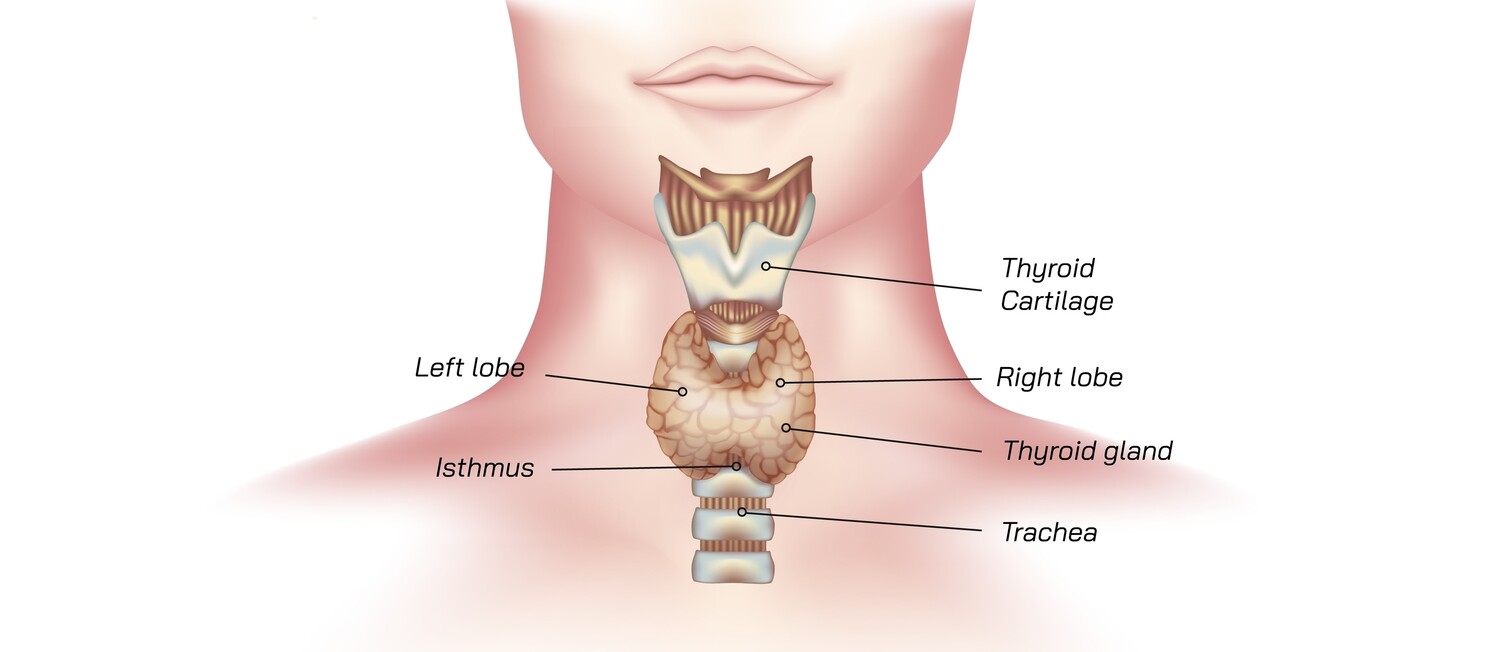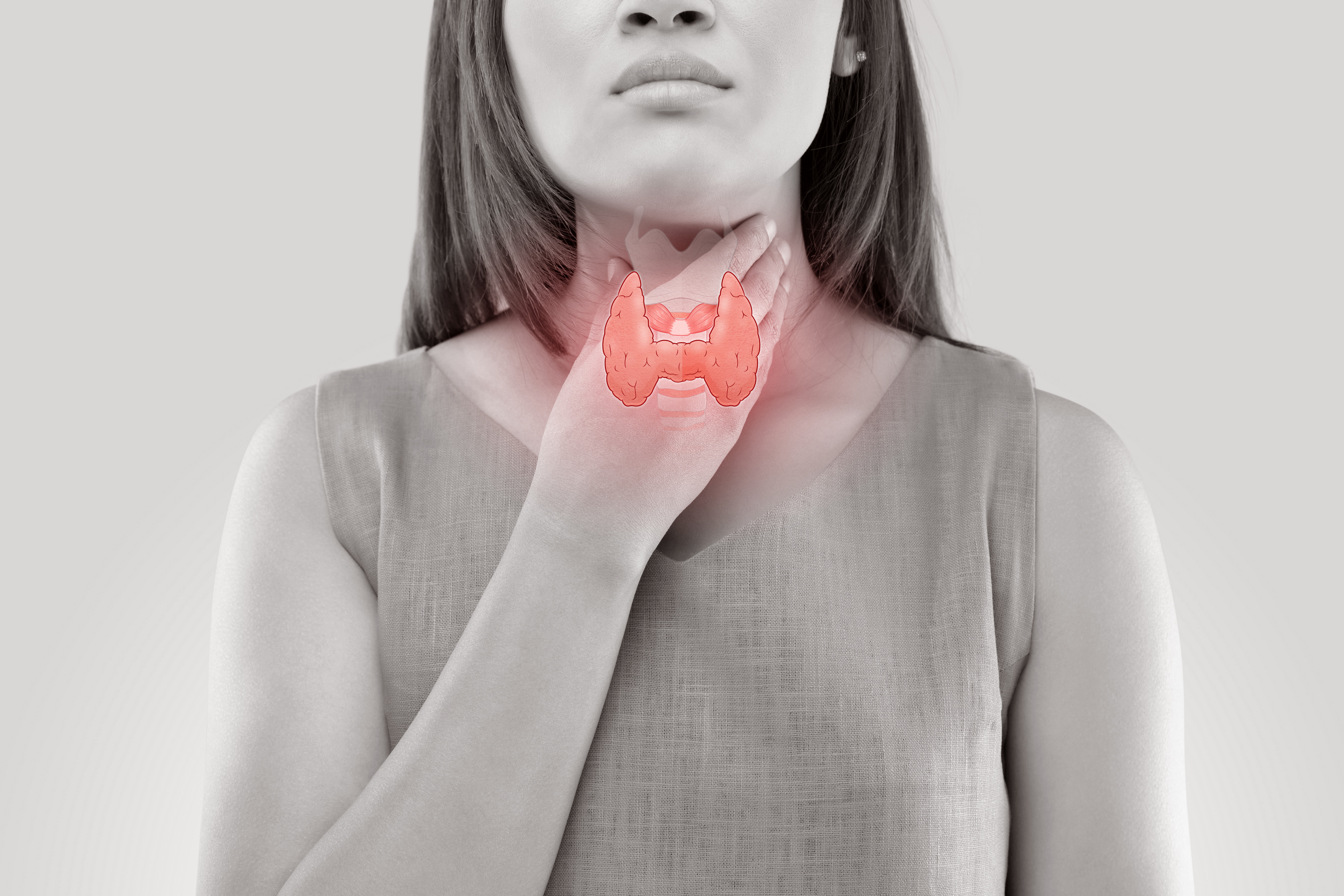
 Hashimoto’s Thyroiditis: Symptoms, Causes, and Functional Medicine Solutions
Hashimoto’s Thyroiditis: Symptoms, Causes, and Functional Medicine Solutions
Overview
Hashimoto’s disease is an autoimmune condition that affects the thyroid gland, a butterfly-shaped organ located at the base of the neck just below the Adam’s apple. The thyroid plays a critical role in regulating metabolism, energy, mood, and many essential functions.
In Hashimoto’s disease, the immune system mistakenly attacks thyroid tissue. Over time, this damages hormone-producing cells, leading to decreased thyroid hormone production, known as hypothyroidism.
Anyone can develop Hashimoto’s, but it is most common in middle-aged women. The standard medical approach typically involves thyroid hormone replacement therapy, but a comprehensive evaluation often reveals deeper factors that trigger the autoimmune process.
Hashimoto’s disease is also referred to as Hashimoto’s thyroiditis, chronic lymphocytic thyroiditis, or chronic autoimmune thyroiditis.
Symptoms
Hashimoto’s often progresses slowly. Many people do not notice symptoms until the thyroid becomes severely underactive. Common signs include:
-
Fatigue and sluggishness
-
Increased sensitivity to cold
-
Dry skin and brittle nails
-
Constipation
-
Muscle weakness, stiffness, or tenderness
-
Joint pain or swelling
-
Low mood or depression
-
Memory problems or brain fog
-
Hair thinning or hair loss
-
Puffy face or enlarged tongue
-
Irregular or heavy menstrual cycles
-
Goiter (swelling of the thyroid gland in the neck)
Because these symptoms overlap with many other conditions, professional testing and diagnosis are important.
When to See a Doctor
If you experience persistent fatigue, hair loss, mood changes, swelling in the neck, or unexplained weight shifts, you should see a healthcare provider. Early testing and treatment can prevent complications and improve long-term health.
Causes
Hashimoto’s is an autoimmune disorder. For reasons that are not fully understood, the immune system produces antibodies that attack the thyroid gland. Over time this causes inflammation and gradual destruction of thyroid tissue.
Potential contributing factors include:
-
Genetic predisposition
-
Environmental exposures (radiation, toxins, infections)
-
Chronic stress
-
Nutritional imbalances
-
Hormonal changes, especially during pregnancy or menopause
Risk Factors
Factors that increase risk include:
-
Being female (women are far more likely to develop Hashimoto’s)
-
Age (more common in middle age)
-
Family history of thyroid or autoimmune disease
-
Other autoimmune conditions such as rheumatoid arthritis, type 1 diabetes, or lupus
-
Pregnancy or postpartum immune changes
-
Excess iodine intake
-
Radiation exposure
Complications
If left untreated, Hashimoto’s and hypothyroidism can lead to serious health problems, including:
-
Goiter – an enlarged thyroid that may interfere with swallowing or breathing
-
Heart problems – high cholesterol, poor cardiac function, arrhythmias
-
Mental health issues – depression, slowed thinking, memory decline
-
Reproductive problems – infertility, irregular cycles, sexual dysfunction
-
Pregnancy risks – miscarriage, preterm birth, impaired child development
-
Myxedema coma – a rare, life-threatening complication of severe untreated hypothyroidism
Diagnosis and Treatment
Conventional diagnosis usually begins with a TSH test, but a full thyroid panel provides a much clearer picture. This includes:
-
TSH
-
Free T4 (inactive hormone)
-
Free T3 (active hormone)
-
Reverse T3 (a blocking hormone)
-
Thyroid peroxidase antibodies (TPOAb)
-
Thyroglobulin antibodies (TgAb)
Treatment typically involves thyroid hormone replacement (such as levothyroxine). While necessary for many patients, this does not address why the immune system is attacking the thyroid in the first place.
Functional Medicine Perspective
At O’Keefe Matz Functional Health Clinic, we combine conventional and functional medicine to help patients address both symptoms and root causes of Hashimoto’s disease.
Comprehensive Thyroid Testing
We use expanded lab panels that evaluate thyroid hormones, antibodies, nutrient levels, adrenal function, gut health, and hormone balance. This helps us uncover what is driving the autoimmune process.
Root Causes Addressed in Functional Medicine Care
-
Nutrient Deficiencies – Selenium, zinc, vitamin D, and iron are essential for thyroid function 【https://pubmed.ncbi.nlm.nih.gov/28465595/
- Stress and Adrenal Imbalance – Chronic stress can alter thyroid conversion 【https://www.frontiersin.org/articles/10.3389/fendo.2019.00276/full】
- Gut Health – Leaky gut and dysbiosis drive autoimmunity 【https://www.ncbi.nlm.nih.gov/pmc/articles/PMC3384703/
- Food Sensitivities – Gluten sensitivity is strongly associated with Hashimoto’s 【https://pubmed.ncbi.nlm.nih.gov/26026392/
- Environmental Toxins – Heavy metals and chemicals disrupt thyroid and immune balance.
- Hormonal Shifts – Perimenopause, menopause, and postpartum periods often trigger thyroid dysfunction.
Expert Insights
Dr. Datis Kharrazian, author of Why Do I Still Have Thyroid Symptoms? Thyroidbook.com https://thyroidbook.com
“Most patients with Hashimoto’s are told their thyroid problem is just a hormone issue, but in reality it is an immune imbalance that needs to be addressed.”
“You cannot simply medicate Hashimoto’s away. If you don’t identify the triggers — whether it’s food intolerances, infections, or environmental toxins — the autoimmune process continues.”
Dr. Wayne Sodano, author of Integrative Medicine Approach to Thyroid Disorders (Goodreads)
“The thyroid is not merely a gland to be medicated—it is a signal, a barometer of deeper systemic imbalance.”
Both perspectives reinforce our clinic’s philosophy: Hashimoto’s care must look beyond the thyroid itself and focus on identifying and correcting the underlying immune triggers.
Why This Matters
By combining thorough diagnostic testing with personalized treatment, functional medicine helps patients reduce inflammation, calm the immune system, and support thyroid health. Many patients experience improvements in energy, mood, weight balance, focus, and overall quality of life when care goes beyond hormone replacement alone.
Request an Appointment
If you suspect you have Hashimoto’s disease or are struggling with thyroid symptoms, we invite you to schedule an appointment.
About Dr. Shannon O’Keefe
Dr. Shannon O’Keefe, DC, DCBCN, is a Chiropractic Physician and Board Certified Clinical Nutritionist specializing in functional medicine. With advanced training in internal diagnosis, Dr. O’Keefe helps patients uncover the root causes of chronic conditions such as thyroid disorders, autoimmune diseases, fatigue, digestive dysfunction, and hormonal imbalances.
Her expertise combines evidence-based nutrition, functional lab testing, and integrative therapies to create personalized treatment plans. Dr. O’Keefe is dedicated to helping patients restore energy, balance their hormones, and achieve lasting wellness through a whole-body approach.




